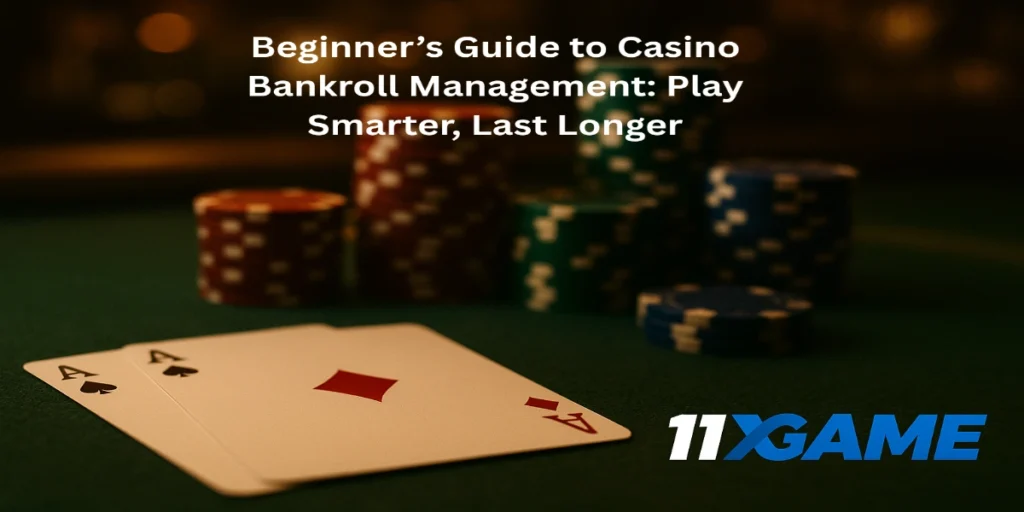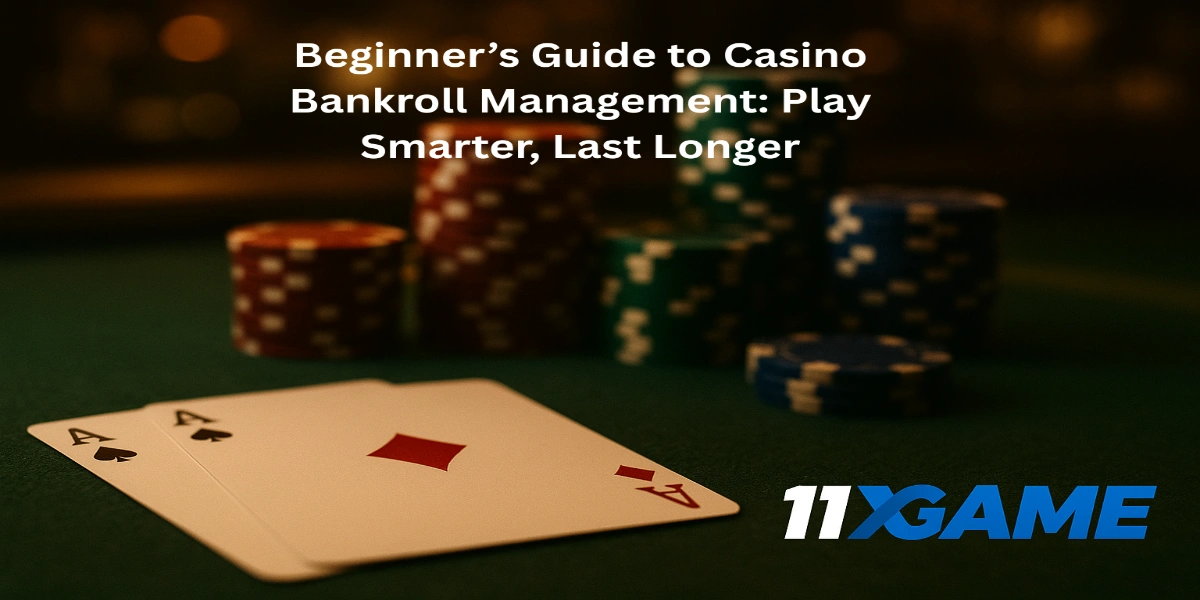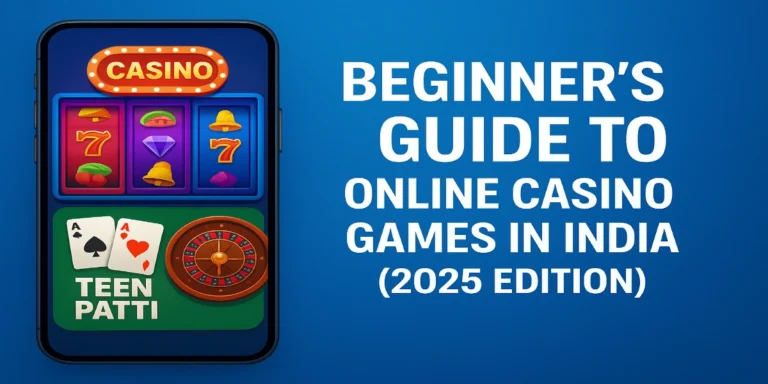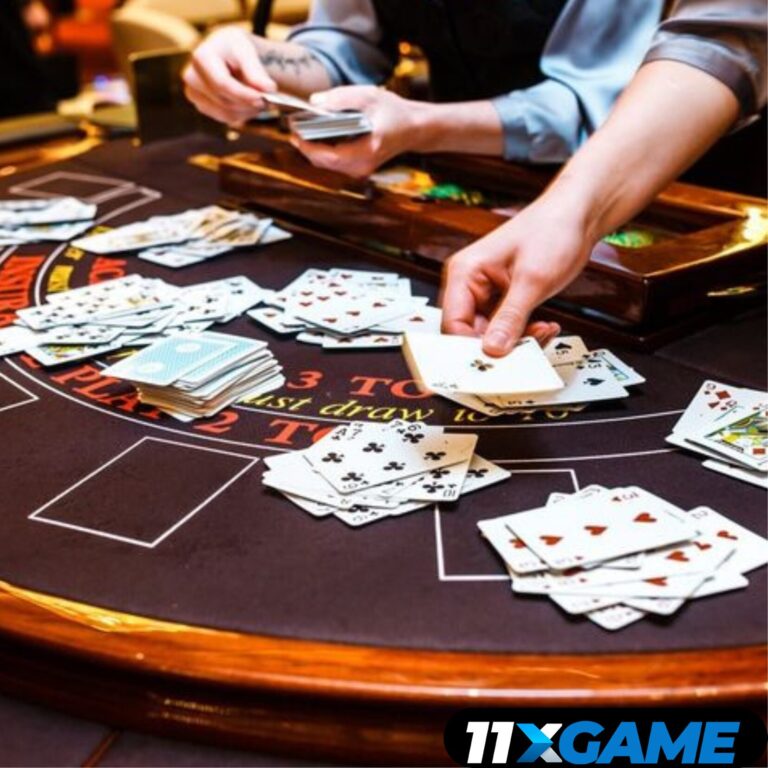Beginner’s Guide to Casino Bankroll Management: Play Smarter, Last Longer
Walking into a casino can be exciting — the bright lights, the sound of slot machines, and the buzz around the tables can easily tempt you to dive right in and start betting big. But without a solid plan for managing your money, your bankroll can disappear faster than you think. Casino bankroll management is the foundation of responsible gambling. It allows you to enjoy the game longer, avoid impulsive decisions, and keep your risk under control.
This guide will explain everything you need to know about managing your bankroll as a beginner, including setting limits, choosing the right games, and making smart betting decisions. Whether you are a casual player or someone who enjoys regular trips to the casino, following these strategies can help you make the most out of your gaming sessions.
What Is Casino Bankroll Management?
Casino bankroll management is the process of setting aside a specific amount of money for gambling and planning how to use it effectively. Instead of treating your entire wallet or bank account as fair game, you create a dedicated “bankroll” for casino play and stick to it. This prevents overspending, keeps you disciplined, and allows you to play with a clear mind.
Good bankroll management doesn’t guarantee a profit — no strategy can beat the house edge in the long run — but it ensures you have enough funds to weather losing streaks and capitalize on winning streaks.

Step 1: Set a Gambling Budget
Before stepping into a casino or logging in to an online platform, decide exactly how much money you are willing to spend. This should be an amount you can afford to lose without affecting your essential expenses like rent, food, or bills.
Tips for Setting a Budget:
- Consider your monthly income and expenses before allocating a gambling budget.
- Use disposable income only — never gamble with money meant for necessities.
- Treat your bankroll as entertainment money, not an investment.
For example, if you can spare $200 for a weekend night out, set that as your bankroll and commit to not going over it, regardless of whether you win or lose.
Step 2: Divide Your Bankroll
Once you have set your total gambling budget, divide it into smaller sessions or game-specific amounts. This prevents you from blowing your entire bankroll in a single sitting.
How to Divide Your Bankroll:
- If you have $200 and plan to play for four sessions, allocate $50 per session.
- If you play multiple games, assign a portion of your bankroll to each game (e.g., 40% for blackjack, 30% for slots, 30% for roulette).
- Never chase losses by dipping into funds meant for other sessions.
Breaking your bankroll into parts also makes it easier to measure how well you are doing over time and make adjustments to your strategy.
Step 3: Choose Games with the Best Odds
Bankroll management is about extending your playtime, and one of the best ways to do that is to choose games that offer a lower house edge. Some casino games have odds that are far more favorable to players than others.
Games with Better Odds:
- Blackjack: House edge as low as 0.5% with basic strategy.
- Baccarat (Banker Bet): House edge around 1.06%.
- Craps (Pass Line + Odds): One of the fairest bets in the casino.
- Video Poker (Full-Pay): Can have nearly break-even returns with perfect play.
Avoid high house-edge games like keno and certain slot machines if your goal is to make your bankroll last.
Step 4: Bet Sizing and Risk Control
Once you know your session budget, decide how much to wager per bet. Betting too much per hand or spin can lead to quick losses, while betting too little may not give you a chance to capitalize on winning streaks.
General Bet Sizing Guidelines:
- For table games like blackjack or baccarat, risk no more than 2–5% of your session bankroll per hand.
- For slot machines, choose stakes that allow at least 50–100 spins per session.
- Adjust your bet size slightly upward when you are winning, but never double your bets aggressively unless you have a clear strategy (e.g., controlled progression systems).
Proper bet sizing ensures you can ride out the natural ups and downs of gambling without going broke too quickly.
Step 5: Set Win and Loss Limits
Professional gamblers always set a target for both profit and loss. This helps them walk away with winnings and protects them from losing more than they can afford.
Example:
- If your bankroll is $200, set a win goal of $100 (50% profit). If you hit that number, cash out and celebrate your win.
- Set a stop-loss limit — for example, $100. If you lose half of your bankroll, end the session.
Having these limits in place keeps you disciplined and prevents emotional decisions when things aren’t going your way.
Step 6: Track Your Results
Keeping records of your sessions is crucial if you want to improve your gambling habits. Note how much you started with, how much you wagered, and whether you ended up with a profit or loss.
Tracking your results will help you:
- Identify which games are most profitable for you.
- Notice patterns in your play — such as over-betting after a win.
- Stay realistic about your long-term results and avoid chasing unrealistic profits.
The Psychology of Bankroll Management
One of the biggest benefits of bankroll management is psychological. When you have a plan, you reduce stress, avoid panic betting, and enjoy the game more. Players who gamble recklessly often end up frustrated, angry, or “on tilt,” which leads to even more bad decisions.
Disciplined bankroll management keeps you in control of the game instead of letting emotions take over.
Why Bankroll Management Matters
- Prevents Financial Stress: You never lose money you can’t afford.
- Increases Playtime: Smaller bets keep you in the game longer.
- Improves Decision-Making: You make rational choices, not impulsive ones.
- Supports Responsible Gambling: It sets clear boundaries between entertainment and financial risk.
(This article is for informational purposes only. Gambling involves risk. Please bet responsibly.
Always check local laws before playing & follow the law.)
Responsible Gambling
Casino bankroll management goes hand in hand with responsible gambling. Treat every session as entertainment rather than a way to make money. If you find yourself betting more than you planned or feeling stressed, take a break.
Final Thoughts
Bankroll management may sound simple, but it is one of the most powerful tools you can use to play smarter and enjoy casino games responsibly. By setting a budget, dividing your bankroll, choosing games with the best odds, and sticking to win/loss limits, you can significantly extend your playing time and avoid unnecessary financial stress.
Remember, gambling should always remain a form of entertainment, not a financial strategy. Play smart, stay disciplined, and enjoy the experience.
FAQ (Frequently Asked Questions)
1. What is bankroll management in casinos?
Bankroll management is the practice of setting a budget for your gambling sessions and sticking to it. It helps players avoid overspending and reduces the risk of losing all their money in one sitting.
2. Why is bankroll management important?
It’s important because it protects your funds, allows you to play longer, and helps you avoid emotional decisions like chasing losses.
3. How much money should I set aside for gambling?
Experts recommend only gambling with money you can afford to lose. A good rule is to set aside 1–5% of your disposable income per session
“For more educational resources and responsible gaming tips, visit 11xGame to stay informed and safe while enjoying your favorite sports.”






